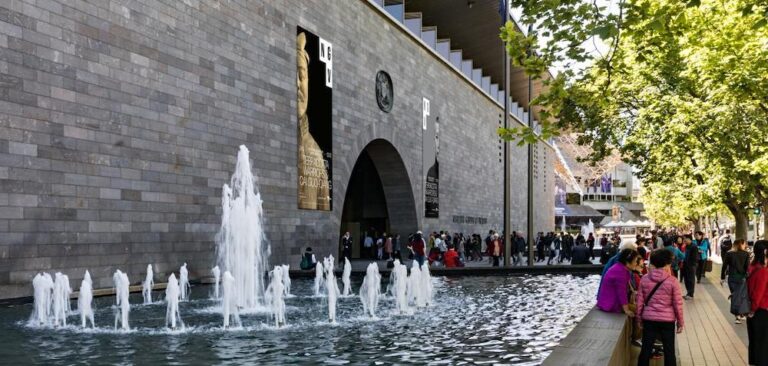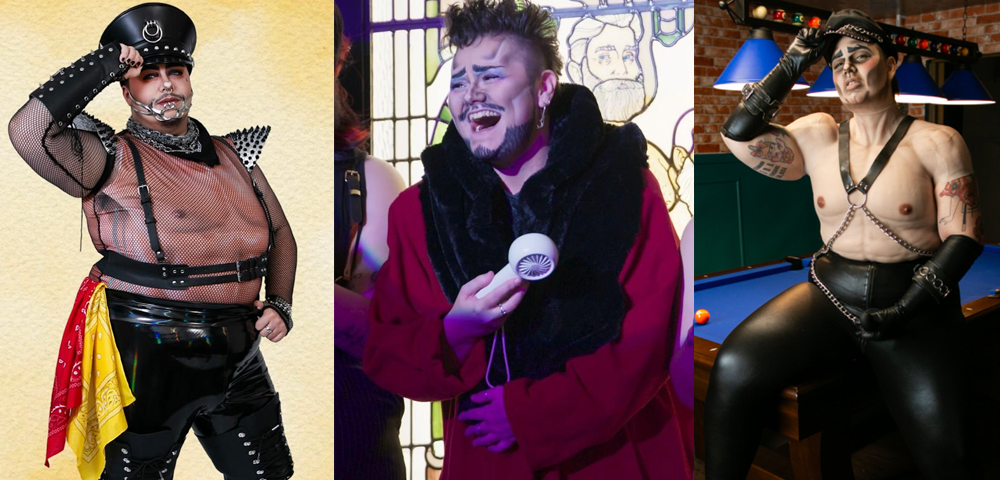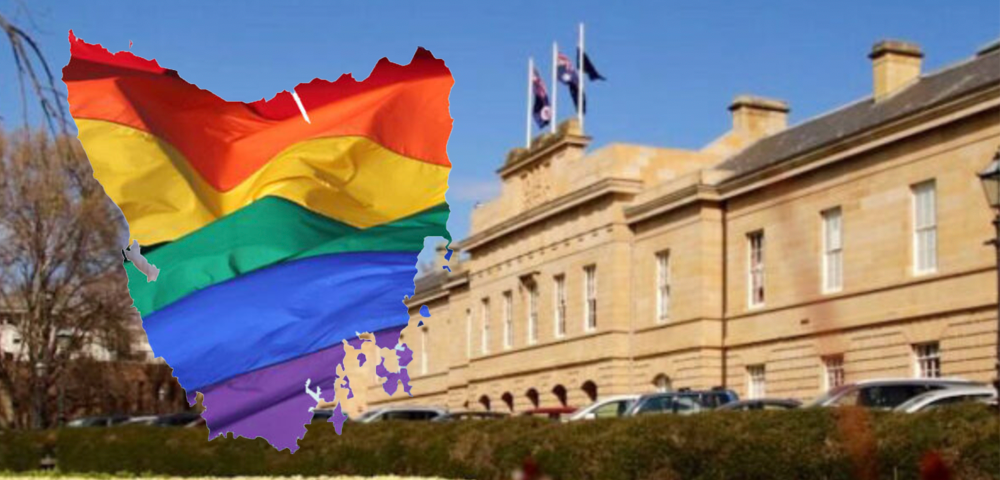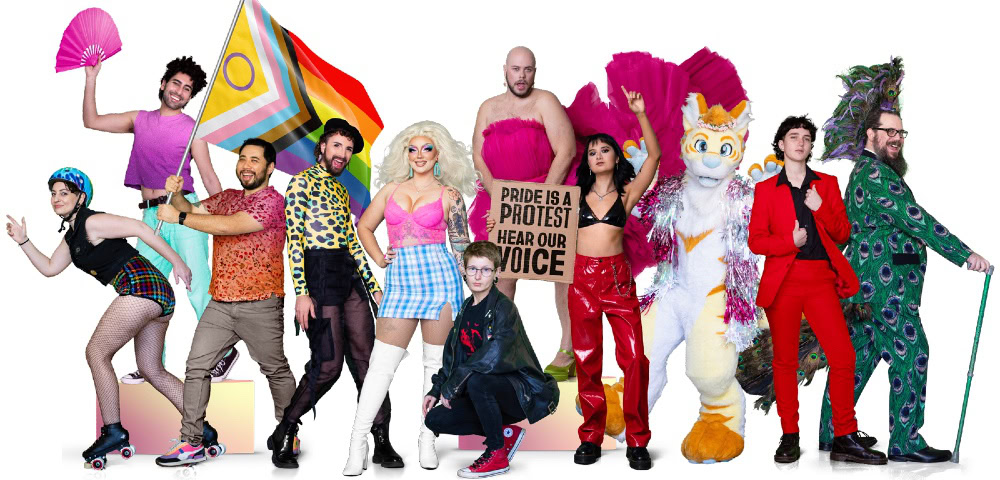
Wake up where the clouds are far behind

ALTHOUGH I could not understand the French, I could hear David’s sadness over leaving his partner even before the words were translated into English.
“He’s saying that sometimes over long distance and long time, love doesn’t maintain itself.”
David is in Australia seeking asylum because he fears if he returns to his home country of Cameroon he will be killed. His male partner still lives there, but David was able to travel to Australia for the International AIDS Conference in Melbourne in July. Like many other delegates from countries hostile to homosexuality, when the conference ended, he stayed.
I met him along with a woman, a friend helping him with his refugee claim and who acted as his interpreter, in a café in Melbourne’s CBD.
David is not his real name. As a prominent activist for gay and sex worker rights in his home country, he is worried if the authorities in Cameroon learn he is seeking asylum here his partner could be put in danger.
He became involved in HIV and sex worker activism when he saw first-hand the stigma and discrimination faced by male sex workers seeking treatment or even testing for HIV in Cameroon.
“If you’re a sex worker and you’re gay, if you’re exposed to blood contact by your partner or your client and you present yourself for prophylactic at the hospital… it’s a public health rule that you have to bring the person who you were exposed with at the same time,” David’s interpreter explained.
“If you bring a man, either a client or your partner, sometimes they’ll call the police, sometimes they’ll just tell you to get stuffed, and generally the stigma means that people don’t do it.”
David’s own experiences as a sex worker after being rejected by his family and his church for being gay drove him to want to make things better for the friends and colleagues he saw facing the worst of the country’s widespread homophobia.
Same-sex sexual acts are illegal in Cameroon, and those convicted face five years in prison and a fine. Both LGBT people and sex workers face significant discrimination and social stigma, and many believe homosexuality is caused by sorcery or evil spirits. Last year an openly-gay human rights advocate was tortured and killed in the capital of Yaoundé.
Recent weeks in particular have seen a ramping up of anti-gay persecution in Cameroon, with high profile arrests for alleged homosexuality-related crimes.
David helped set up a centre in a city in Cameroon for sex workers and men who have sex with men to access sexual health and HIV information and services. Sex work is also illegal in Cameroon, and the stigma attached to even visiting a centre like David’s means most people who access the service visit after dark to remain anonymous.
Before David left Cameroon, he too was forced to travel to and from the centre in darkness.
He had reason to be cautious — last year David was attacked outside the centre by men wielding knives. He managed to escape uninjured, but the incident forced him to flee the country for several weeks. In another incident, David was detained by local police for hours without charge.

When he managed to receive sponsorship to travel to Melbourne for the International AIDS Conference, David and his partner both agreed he could not return to Cameroon once the conference ended.
“It was difficult with my boyfriend but he’s very strong, because he already lived through a war in his country,” David’s friend interpreted — his boyfriend comes a neighbouring country.
“He said that it’s not a good idea for me to put my life in danger anyway.”
When the two of them had that painful conversation, they both thought David leaving meant they might not see each other again in person, except for occasional meetings in neutral countries they could both get to.
He has since learned a successful refugee claim might mean David’s partner could come to Australia to be with him. Nothing is certain, but David’s lawyer believes it might be possible for him to obtain a visa as his de facto.
David faces a wait of up to two and a half years for a protection visa, and can only apply for a de facto partner visa if and when his own is granted. With frequent changes to government policy relating to onshore protection visas, including limiting the number of places, the future is uncertain. David’s de facto claim may also be hampered by the difficulty in demonstrating their relationship — a challenge when said relationship is illegal in Cameroon — though the couple’s circumstances will be taken into account when the claim is assessed.
The two speak regularly over Skype, but he says it’s hard — talking makes them both sad. I asked David how his partner responded when he told him about the possibility of the two of them reuniting in Australia.
“He hasn’t told him yet. He’s keeping that for himself,” his interpreter said.
“I’m afraid, he says. He’s saying, what if it doesn’t work and then I’ve gotten so happy about the idea that it’ll happen and then it doesn’t happen.”
Whatever the outcome, of David’s refugee claim or of a possible visa application for his partner, it will be a long wait.
With little to do but wait for the outcome of his application, David is finding ways to pass the time in Melbourne.
He met some of the other delegates who remained here to seek asylum after the International AIDS Conference, but most of them come from English-speaking parts of Africa, countries like Nigeria and Uganda. Despite their shared experiences of persecution, they don’t speak the same language.
David has started English classes, and he plans to become involved with local gay rugby team the Melbourne Chargers. Even in the face of religiously-motivated hatred, he’s a devout Christian with a love of singing — he has joined a church choir. He is also adamant about continuing to fight to advance the rights of LGBT minorities and sex workers in Cameroon. He hopes a successful refugee claim in Australia will give him some protection to one day be able to freely enter and leave Cameroon, to continue his work.
I asked David if he felt some relief to be here, safe from at least the immediate threat of violence. Even in the French he sounded as though he was having trouble conveying his response. As he spoke, his friend did her best to explain.
“I said, do you feel relieved, and he said, not perfectly relieved,” she said.
“The past is still in my head and I’m not at peace — I will be happier if I can think that the centre will continue to maintain itself without me.”
He went on, the two of them speaking at once, French and English both communicating depth and complexity of David’s feelings.
“He’s saying, I will be more, épanouie, it’s a great word but it’s not really easily translatable,” said his interpreter.
“It’s like a ‘soul’ kind of verb, like, my soul will be free of constraints when I can talk properly here, learn English, be able to express myself properly, tell people about my ordeal and integrate myself into Australian society properly, and finally, when my boyfriend will be here.”
David is currently facing financial and housing difficulties in Melbourne while he waits for his refugee claim to be processed. If you are able to help, please contact amy_joli@yahoo.com
**This article was first published in the November edition of the Star Observer. Click here to find out where you can grab your free copy in Melbourne, Sydney, Brisbane, Adelaide, Canberra and select regional areas.










Why not stay and fight? Instead of fleeing
This is an unfair question. The life and threats to life of a human rights defender are extreme. Sometimes u need to leave.
It’s not an unfair question Si Long. Sometimes people need to stay and fight to enable change. Imagine if Nelson Mandela or Ghandi or the 78ers all fled…
Terribly sad how our LGBT brothers and sisters are suffering overseas. Cameroon is so viciously homophobic but no-one seems to pay them any attention.